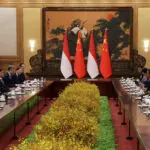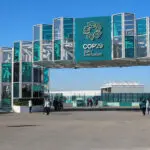By Joan Faus
BARCELONA (Reuters) -Catalan separatist leader Carles Puigdemont said on Wednesday he was returning after seven years in self-imposed exile to Spain, where he would likely be arrested over his role in the region's 2017 independence bid.
His arrest and potential imprisonment before he might face trial could unleash fresh turmoil in Catalonia and threaten the fragile Socialist-led coalition ruling Spain, which relies on Puigdemont's hardline Junts party to pass legislation.
To secure Junts' legislative support for Socialist Prime Minister Pedro Sanchez's government, Spain's parliament in May approved an amnesty law designed to allow Puigdemont a safe return from Belgium.
The amnesty aimed to cancel legal proceedings against hundreds of separatists involved in Catalonia's 2017 illegal referendum, but Spain's Supreme Court ruled last month that the law did not apply to an embezzlement charge against Puigdemont and upheld an arrest warrant he faces.
Still, Puigdemont said he remained committed to attending the Catalan parliament's session that is due to swear in the region's new leader following an election in May, in which Puigdemont finished second.
The swearing-in is scheduled for Thursday. Puigdemont said he would keep his word and be in Barcelona then.
"I have started the return trip from exile," he said in a video posted on X. He also said in the video message that his arrest would be illegal and arbitrary.
Neither Puigdemont nor Junts on Wednesday said whether he had already entered Spain.
Thursday's session is poised to appoint Socialist Salvador Illa as the new Catalan president, ending over a decade of separatist governments.
Puigdemont's supporters plan to welcome him on Thursday morning on a Barcelona boulevard near the regional parliament, setting the stage for a potentially dramatic arrest witnessed by reporters and bystanders.
Moderate separatist party Esquerra Republicana de Catalunya, currently governing Catalonia, called Puigdemont's return an "exceptional moment" and said it would attend the welcoming event.
That might require a delicate balancing act from the party, which as leader of the regional government is responsible for the regional police force that could arrest Puigdemont. Esquerra will also lend its key votes for Illa to be elected president in exchange for a deal under which Catalonia would gain autonomy in collecting and managing taxes.
Both Esquerra and Junts have backed the Socialist-led national government in Madrid.
If the judge in charge of his case issues a pre-trial imprisonment, Puigdemont is expected to appeal for his release to Spain's Constitutional Court.
(Reporting by Joan Faus; editing by Charlie Devereux and Tomasz Janowski)

 Why AP called Arizona for Trump
Why AP called Arizona for Trump
 Trump wins Arizona, sweeping all seven battleground states, Edison Research says
Trump wins Arizona, sweeping all seven battleground states, Edison Research says
 China, Indonesia enhance ties with key deals on lithium, green energy, tourism
China, Indonesia enhance ties with key deals on lithium, green energy, tourism
 Dozens killed and wounded in Israeli strike on northern Gaza's Jabalia, medics say
Dozens killed and wounded in Israeli strike on northern Gaza's Jabalia, medics say
 King Charles III and Kate will attend remembrance events as both royals slowly return to duty
King Charles III and Kate will attend remembrance events as both royals slowly return to duty
 Taliban administration officials to attend UN climate conference in Azerbaijan
Taliban administration officials to attend UN climate conference in Azerbaijan
 Trump has vowed to kill US offshore wind projects. Will he succeed?
Trump has vowed to kill US offshore wind projects. Will he succeed?
 US to speed up interceptor missiles delivery to Ukraine, WSJ reports
US to speed up interceptor missiles delivery to Ukraine, WSJ reports
 Jalen Milroe runs for career-high 185 yards and 4 TDs as No. 11 Alabama thrashes No. 14 LSU 42-13
Jalen Milroe runs for career-high 185 yards and 4 TDs as No. 11 Alabama thrashes No. 14 LSU 42-13
 Justin Allgaier wins 1st NASCAR Xfinity title, capping comeback by passing Hill and Custer late
Justin Allgaier wins 1st NASCAR Xfinity title, capping comeback by passing Hill and Custer late
 Evan Mobley scores 23 points and Cavaliers rally past Nets 105-100 to remain perfect at 11-0
Evan Mobley scores 23 points and Cavaliers rally past Nets 105-100 to remain perfect at 11-0

